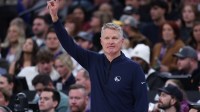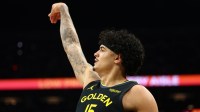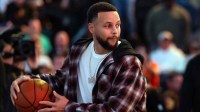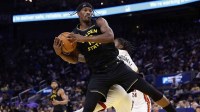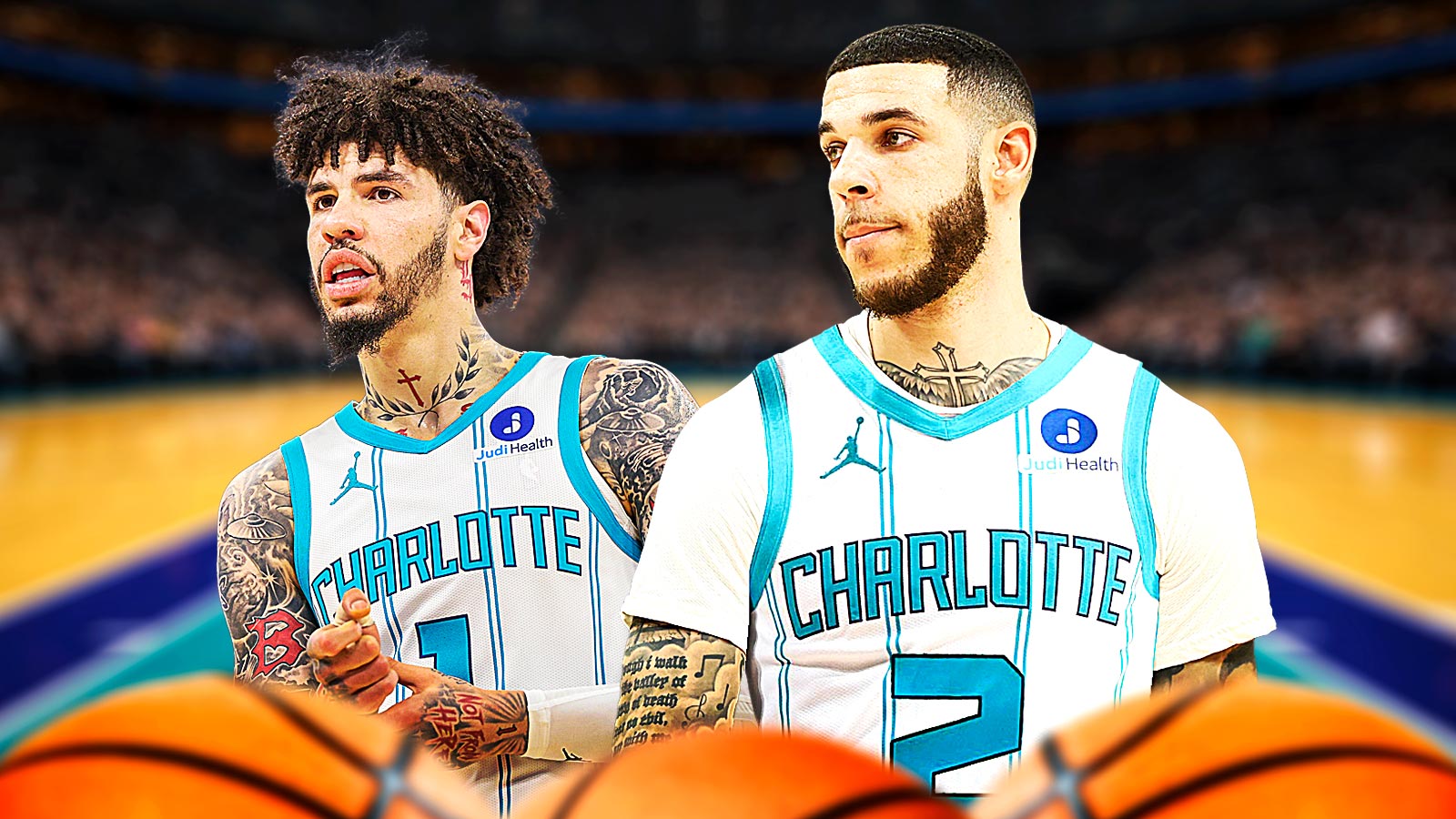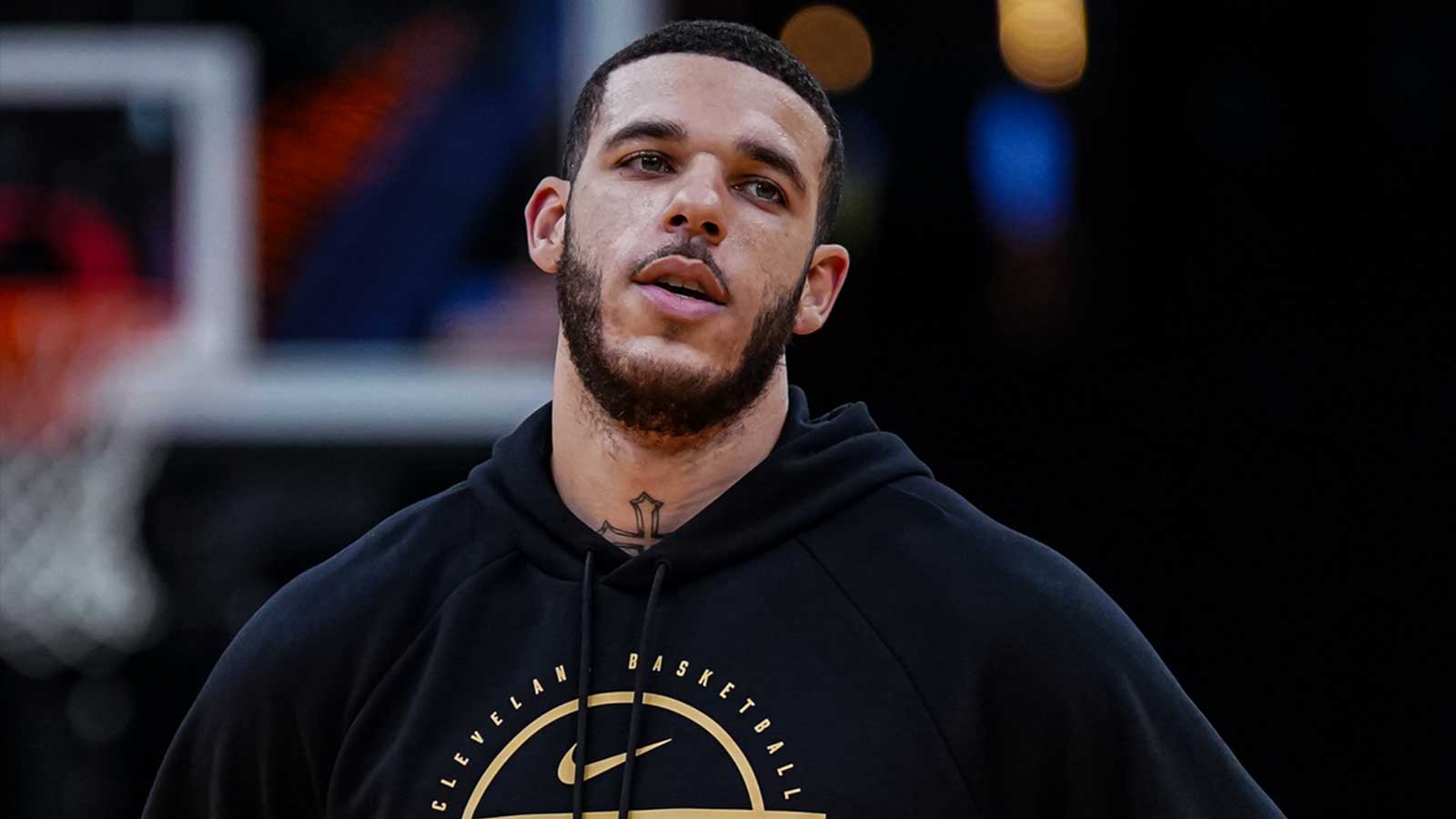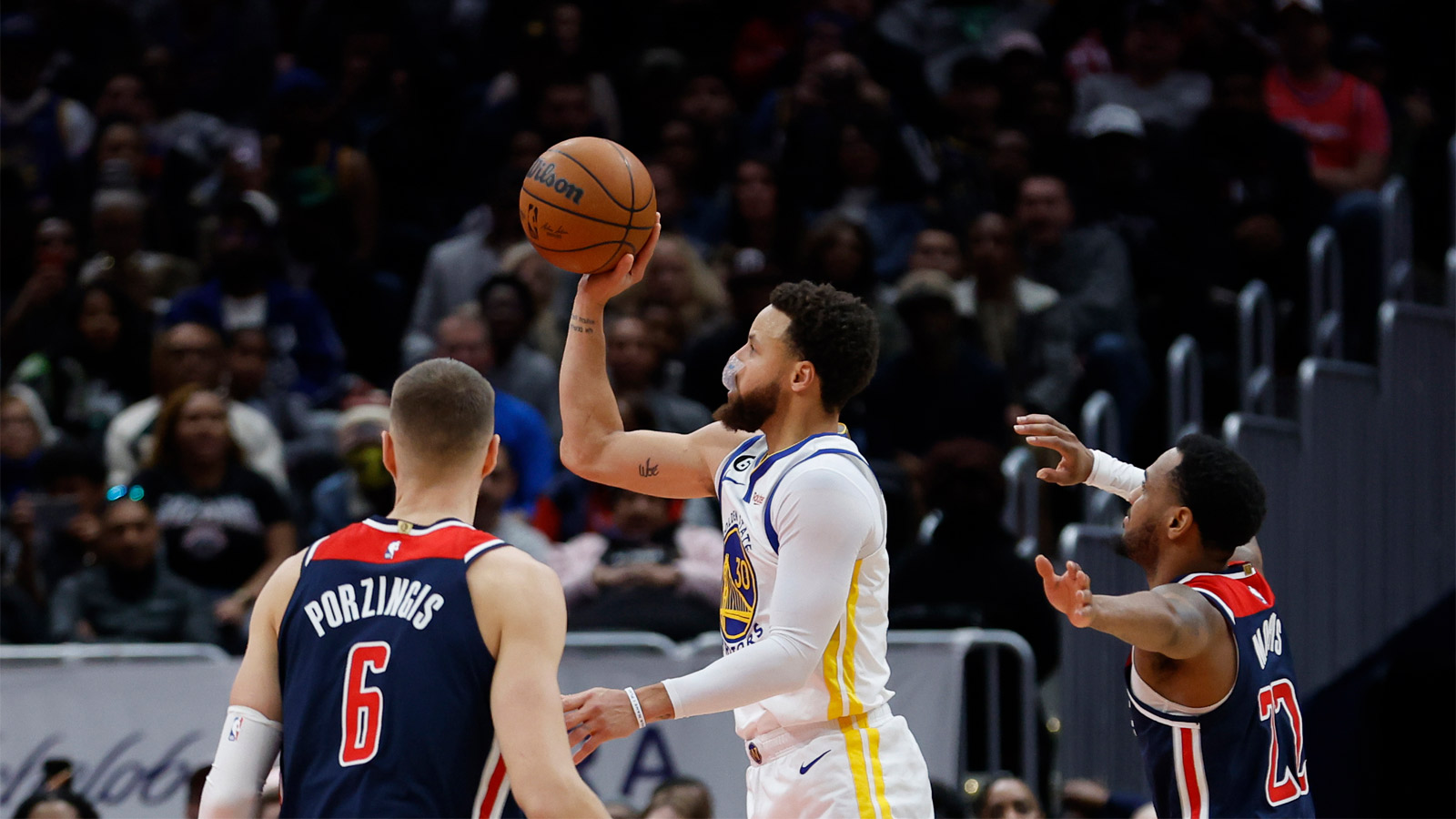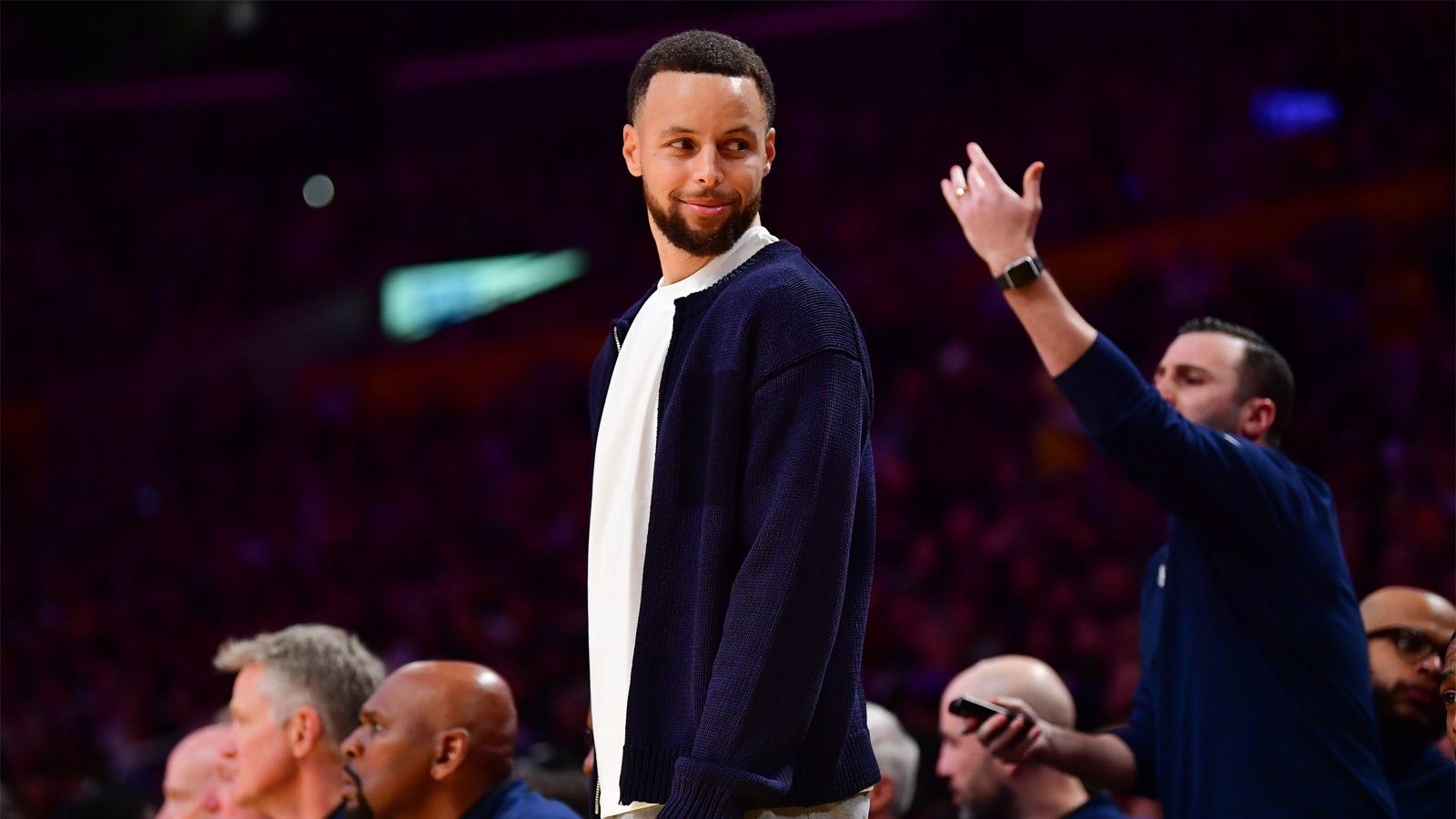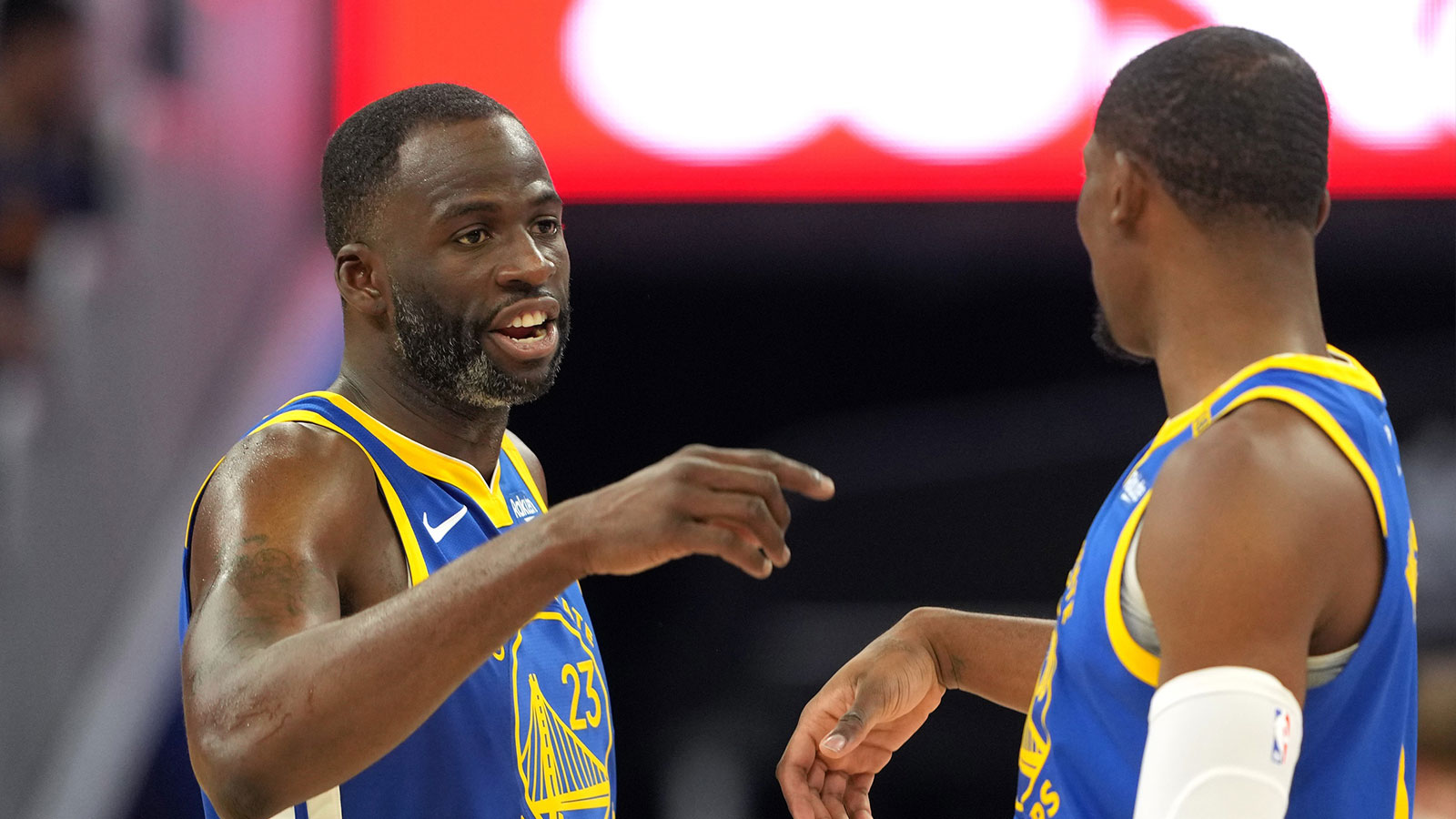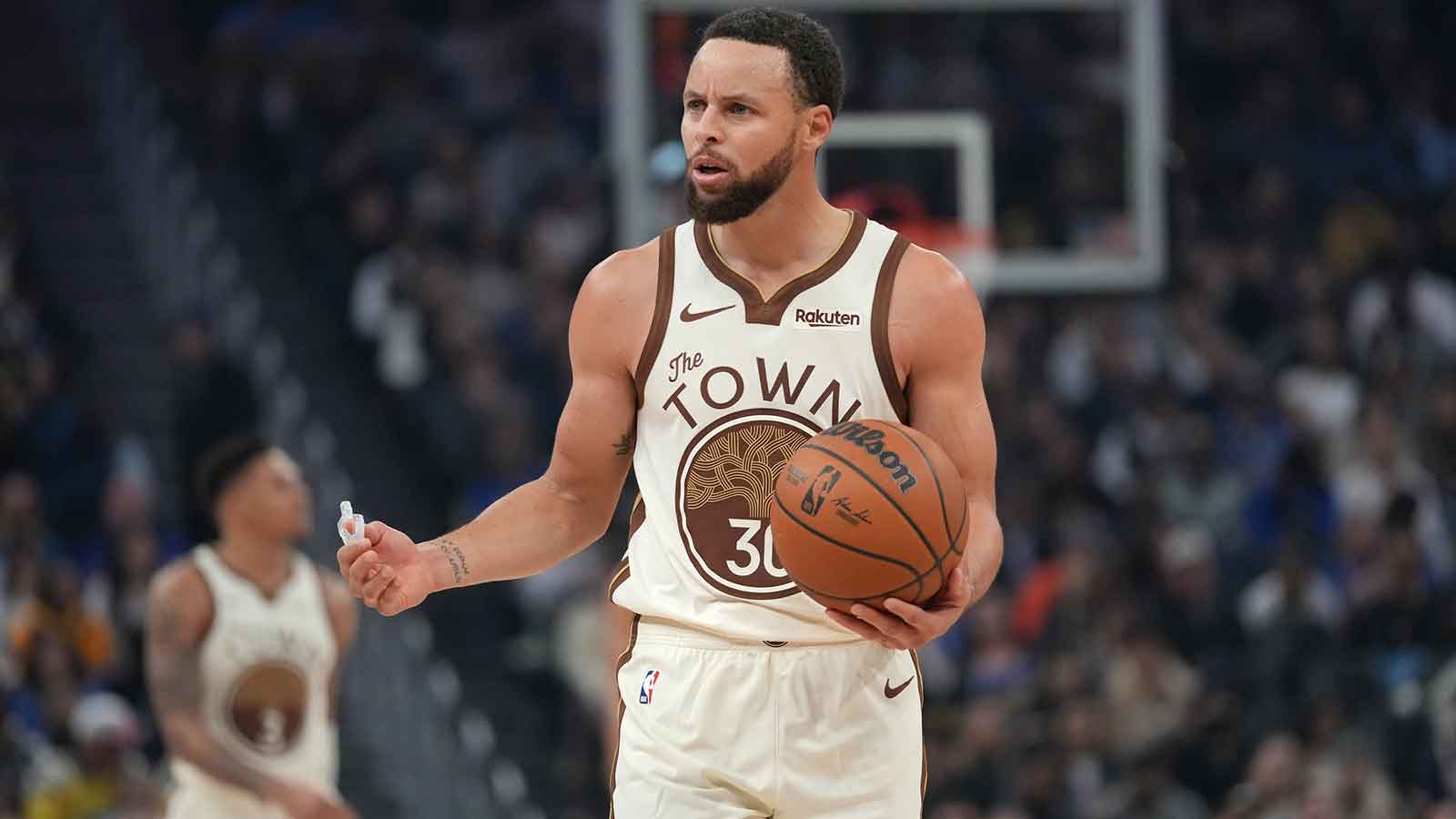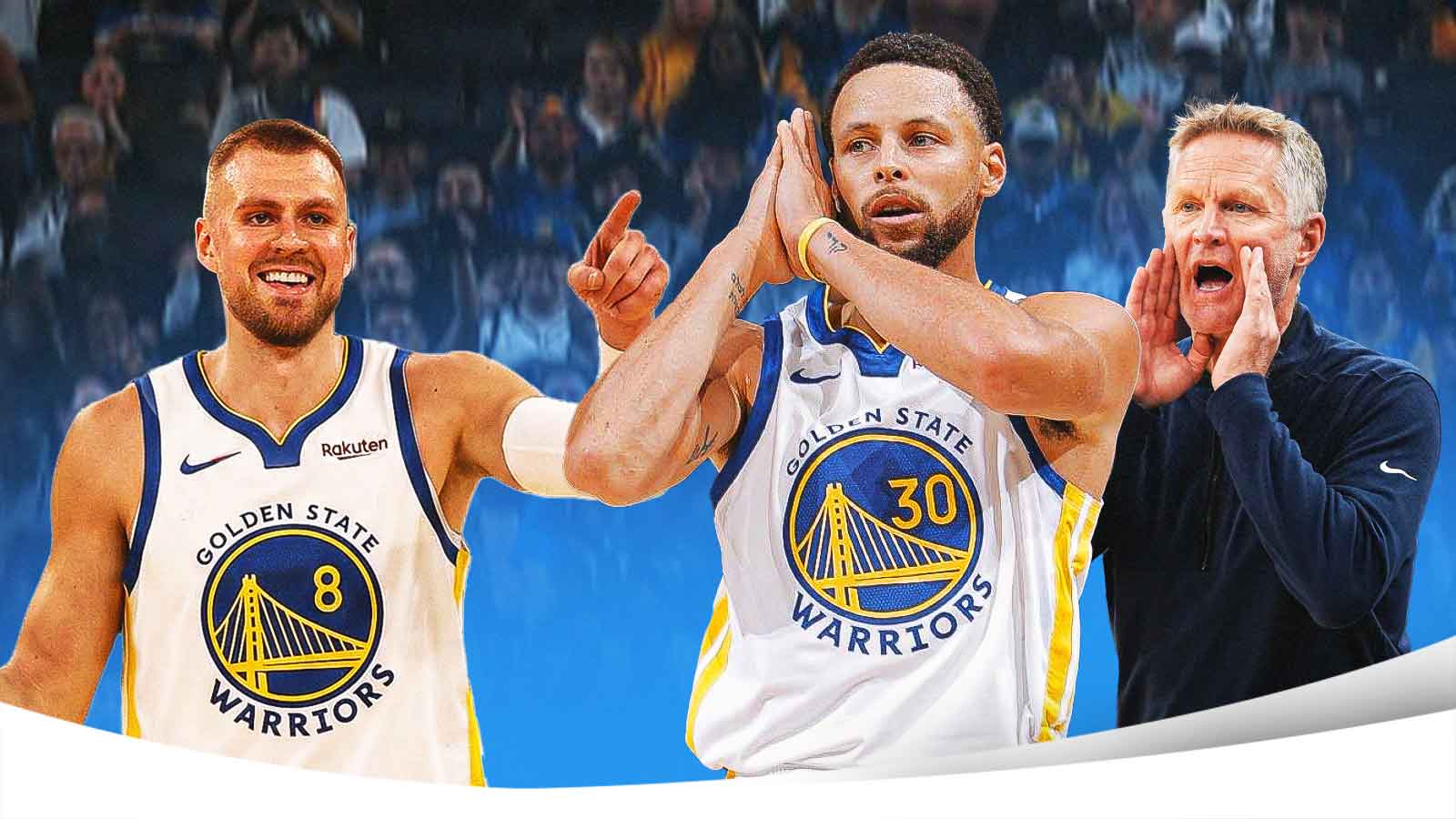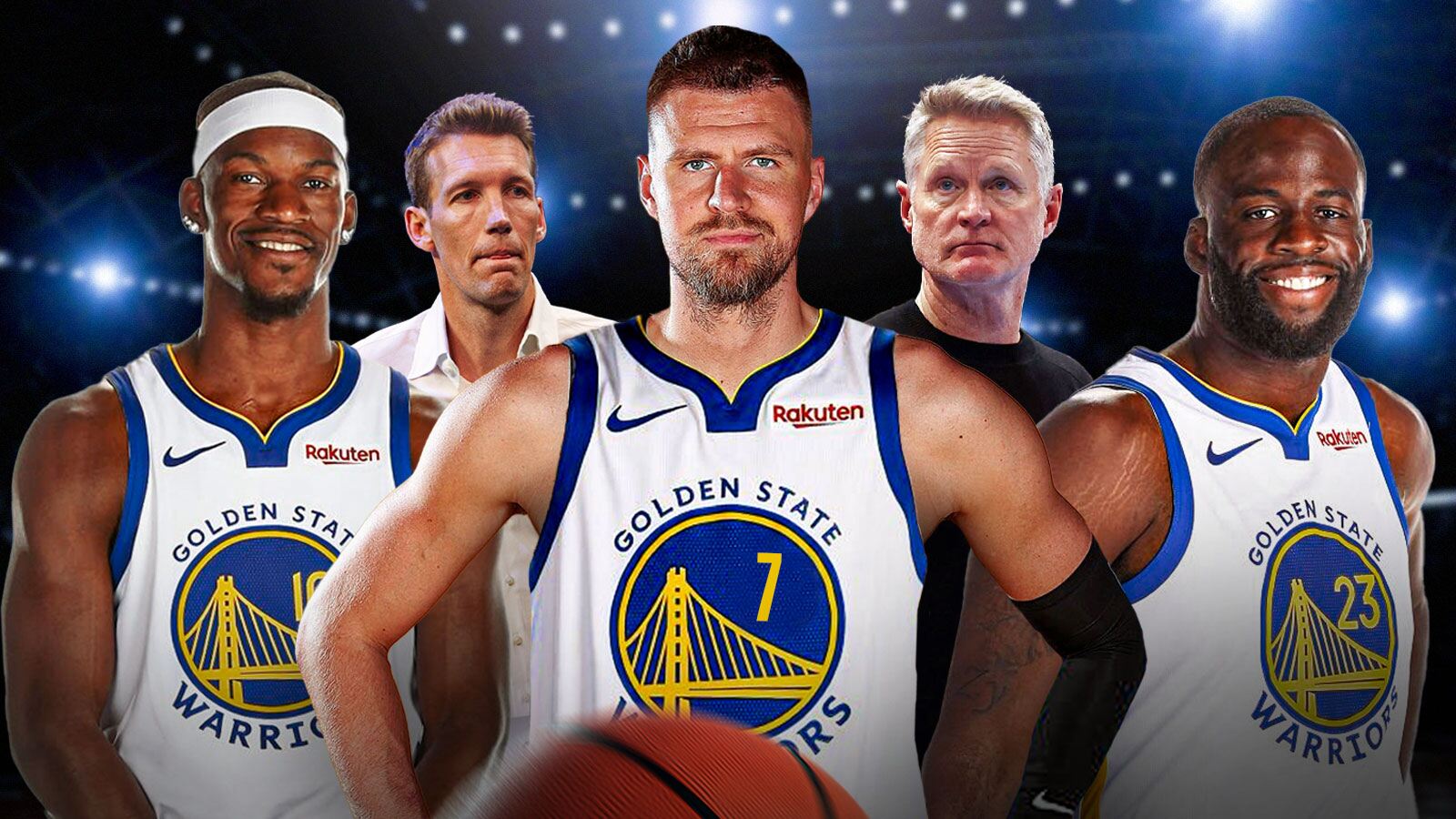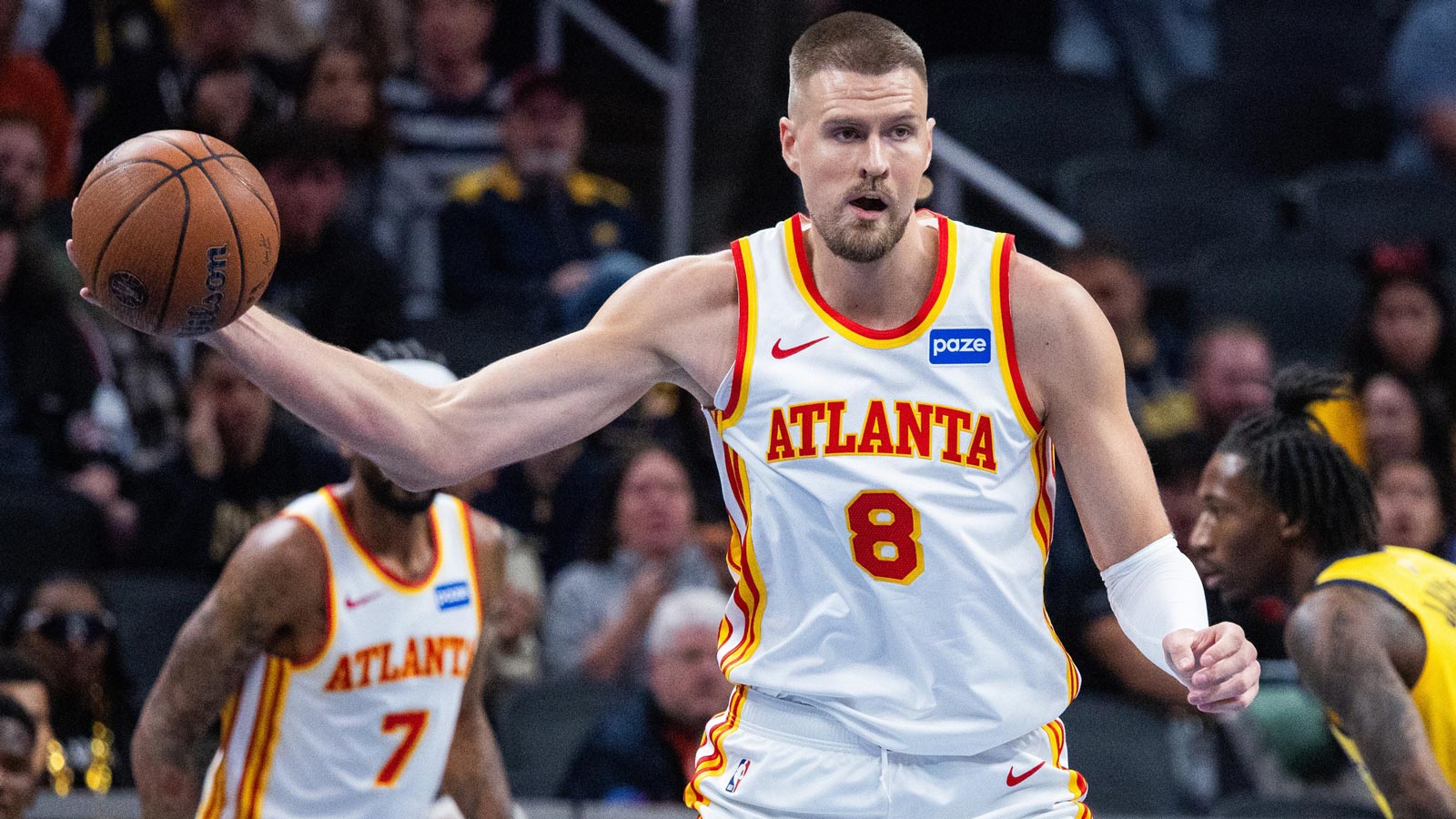OAKLAND — After nearly a full year of nursing a torn left Achilles' tendon, DeMarcus Cousins is finally on the runway back to stepping on the court. To the dismay of fans that argue for NBA parity and competitive balance, that return will be with the Golden State Warriors.
The last time Cousins played in a game was on January 26, 2018, when he landed awkwardly on his foot while chasing down a missed free throw. With only 14 seconds left in the game, the difference between him remaining healthy or being sidelined for 12 months was minuscule, but was just enough to cost him a substantial payday in free agency.
Then a member of the New Orleans Pelicans with an expiring contract, he ended the 2017-18 season with one of the best stretches of his career. From Dec. 1 up to the injury (27 games), he averaged 25.3 points, 13.1 rebounds, and 5.3 assists while shooting 52 percent from two, 38.4 percent from three, and 73.8 percent at the line. He was rounding into the most complete offensive version of himself, being challenged by only Joel Embiid as the most physically dominant big man on the low block.

Once the Pelicans and other organizations feared that Cousins would never be worth a huge financial investment after such a destructive injury, he stood alone like Will Smith on the Fresh Prince of Bel-Air finale.
There was one team with enough talent security to risk bringing him on board, and that was the Warriors. If Cousins had to settle for any cheap deal around the league, he figured it might as well include a winning environment. By signing a deal worth the taxpayer mid-level exception ($5.3 million), he was subjected to a one-year “prove your worth” deal. He could rehab without pressure. Without a timeline. With the second half of the season being an audition for his 2019 free agency.
“I have a lot of compassion for him because of what he's been through,” Warriors coach Steve Kerr said. “When you think about when the injury happened, he's getting ready to sign a max or near max contract, whether it was with New Orleans or somewhere else. A life-changing amount of money. Not to mention the gratification that comes with being one of the best players in the world, an All-Star right in his prime. That all went down the drain for him.”

Cousins already had some form of relationship with a few guys on the roster from playing together with Team USA. For as much time NBA teams spend together from September to April (and beyond), going to a team where he had that type of connection made sense. Still, watching your teammates and friends go through the first half of the journey isn't as fun when you can't physically be a part of it.
“He's only human,” Kerr said. “He had to be thinking, ‘man, what happened? All of a sudden I'm in Golden State, on the mid-level for one year, watching everyone else play basketball?' That's not easy. So, we've tried to help him through that. And the last couple weeks, his overall happiness seems better. He's in a better place.”
Earlier this week, a projected return date was announced for the Warriors' new center. Cousins is aiming to return on Jan. 18 at the Los Angeles Clippers, but that isn't concrete. It depends on how he feels and whether or not the Warriors' medical guru, Rick Celebrini, clears him for that game.
When the time comes to roll out their new lineup with Cousins, it's going to be something completely new for a team that was already successful. Golden State should never be able to complain about its loaded roster, but they are adding a feature they've lacked in the past: a big man that has made his living as a high-usage offensive player. Under Kerr, the centers have primarily been fillers, with one specific skill or niche offensively. Andrew Bogut's usage rating in the two years under Kerr was just 12.3 percent. For Festus Ezeli, only 18 percent. Zaza Pachulia was only at 16.1 percent. In limited minutes, JaVale McGee got up to 21.7 percent usage.
However, none of them are in the same galaxy as Cousins. Since 2015, when he truly became the force everyone knows him to be, Cousins has averaged 19.6 shot attempts per game and 34.9 percent usage overall. For perspective, Russell Westbrook's usage is only 31 percent this season.
“We haven’t had a player like him here before,” Kerr said. “So, it will be new. It won’t be a simple ‘plug him in and he’ll fit right in.’ We’re going to play through him some, so there will be a period where we all have to adapt. Fortunately, we’re only halfway through the year. We do have a lot of games to figure this out.”

For many people that just view basketball through the lens of NBA 2K with less of a human element, there's nothing to talk about. There won't be speedbumps and they'll jog effortlessly to the finish line.
It just doesn't work that way, though. Players are more than robots and no matter what they say, egos can't completely be erased. It's just not realistic. For the Warriors, three players are currently taking roughly 19-20 shots per night, with Stephen Curry at 19.9, Kevin Durant at 19.4, and Klay Thompson at 18.8. Draymond Green has been the one to sacrifice nearly everything offensively, which he seems fine with.
“I know he’s going to be excited to be out there and playing,” Curry said. “Those first couple games, who knows how it will go. But, I think with the collective IQ we have in our locker room and just the unselfishness around what we do, that we’ll hopefully be able to figure it out quickly.”
But will the top three scorers all accept taking a chunk of their offensive possessions away for a low-post center? That's the million dollar question.
This is where it gets intriguing for Cousins: He has to find the balance between showing off his abilities to potential free agent suitors and meshing seamlessly within the Warriors' system. This is not a scenario that can work both ways. Any desire to unleash the impressive numbers — which some general managers will point to — will take the Warriors out of their flow. It will take possessions away from their most efficient and critical players.
On the other side, Cousins agreeing to take a step back will limit the sheer amount of opportunities he'll have with the ball in his hands. What he seems to understand, though, is the best-case scenario for proving his current worth is being a teammate that directly contributes to winning — in any capacity.
“It’s obvious that I won’t be taking as many shots as I have in the past,” Cousins said. “It’s an adjustment for everybody. I believe that’s pretty obvious. I’m not expecting to come out and score 50 points or anything like that. It would be great if I could, but that’s not my expectations. Just coming out, being a part of the team, and winning the game(s). That’s good enough for me.”

Although he's a four-time All-Star and further tilts the “unfair” meter in Golden State's direction, it's also a very tricky fit. It's not the perfect one, even if he's one of the most skilled centers in the modern era. The Warriors are currently top 10 in pace, averaging roughly 101 possessions per 48 minutes. Their offensive possessions, on average, last only 13.3 seconds — tied for third in terms of the quickest offense before a shot attempt
This is the same team that's about to incorporate a seven-foot, 270-pound center after suffering what's usually the worst injury a basketball player can go through. If you take just 10-15 possessions out of the 101 they average and attribute them to Cousins operating near the basket, that inherently slowing down the offense more than anyone on the team would really like.
Given that Achilles' tendon ruptures typically causes most of a player's speed and explosion to vanish, Cousins will mainly have to look for more pick-and-pop shooting opportunities and trail shooting during fastbreaks. When defenders have to scurry back to focus on Durant pushing with the ball and Curry or Thompson darting to the wings, hardly any attention will be paid to Cousins. Kerr alluded to that being the best method for him to attack when he returns, until the coaching staff can implement him the right way.
Another hurdle to overcome is the difference in conditioning that will inevitably strike Cousins. Having not played in a full game for a calendar year, there is no way anyone can expect a player to be in proper game shape. For the first month of him being in the lineup, that's the primary concern.
“This is just the next step for me, Cousins said. “I finished the rehab process, now it’s just getting acclimated with the guys, and finding my wind, finding my legs.”
Kerr is unclear of how long he'll be able to play, but it doesn't help that the entire league is going through a huge boom in pace and transition attacks. While Cousins will start for the team immediately when he's cleared, it doesn't mean he'll see starter minutes. At least not right away.
“I think there are two components, one is the physical aspect of it; how long of a run can he play,” Kerr said. “And the other is just the comfort dynamic. Fitting in with the rest of the guys. Finding the offensive sets that make the most sense, that he’s comfortable with. Both of those things will take some time.”

After spending nearly seven seasons in a losing culture with the Sacramento Kings, experiencing the other side of the spectrum is undoubtedly at the forefront of Cousins' mind. What we won't know until April or May, however, is whether or not he accepts that winning might come while he's on the bench. During the most competitive and fervent playoff matchups, the Warriors' best five-man lineup is still probably going to be the Hamptons Five, which includes Green at center, Durant at the four, and Iguodala as the primary wing defender.
It offers them the most defensive versatility and switching ability, which is something Cousins lacked before the Achilles blowout and realistically won't attain moving forward.
History is certainly not on the positive side for Cousins' long-term progression after this injury. Centers, or even power forwards with his size, rarely rediscover the same effectiveness they used to dominate with. It's not necessarily the age, as Rudy Gay is currently displaying the best possible outcome for anyone over 30 years old that's torn their Achilles' tendon. Gay is playing nearly 27 minutes per game at age 32 and enjoying the best shooting marks of his career.
It's just that Cousins is a different, and bigger, animal. It's unprecedented for someone with his physical stature, but that won't stop him from trying.
“I don’t think anybody could ever really understand this, and I don’t expect them to unless they’ve experienced it themselves,” Cousins said. “But it’ll be a lot of emotions and a big day for me.”
He has to prove that he can be a teammate willing to fit in, despite not getting the same opportunities as before. That's the only way he can look for a richer contract in July while also tasting some victory along the way.
“I’m just excited to play basketball again.”




